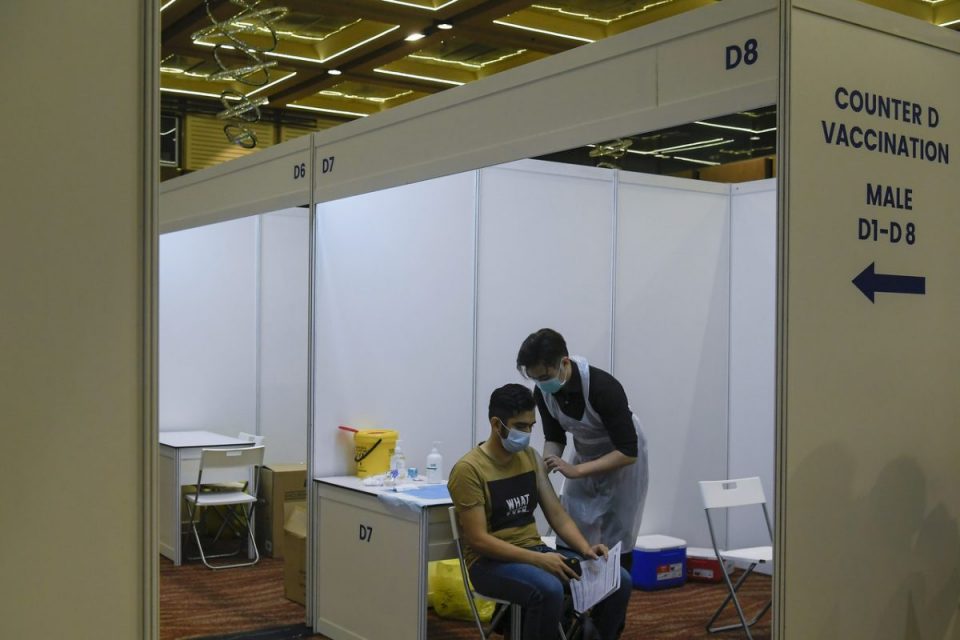KUALA LUMPUR, May 14 — A stronger push towards wider vaccination and herd immunity will be key to the domestic recovery and should facilitate an economic rebound as emergence of new Covid-19 variant poses high risk, Moody’s Analytics’ economist Sonia Zhu said.
Malaysia’s economy contracted by 0.5 per cent year-on-year in the March quarter, following a 3.4 per cent slump in the fourth quarter of 2020.
“Despite a gradual easing of gross domestic product (GDP) contractions, conditions will likely stay weak in the coming quarter due to the latest movement control order (MCO),” she said in a statement today.
Prolonged lockdowns will be a tricky situation to manage especially for daily-wage earners, small businesses and families financially battered with each MCO.
A more infectious Covid-19 variant forced Malaysia to declare a nationwide MCO from May 12 to June 7, 2021 to curb the surge in new daily cases of the virus. Malaysia logged its highest death toll of 39 on May 12, 2021, since the pandemic started as the public health system reaches its capacity limits.
Besides Malaysia, neighbouring Southeast Asian countries such as Singapore and Indonesia also are facing a surge in Covid-19 infections.
The MCO comes at an inconvenient time just days before the end of Ramadan, which is the Malaysian Muslim community’s biggest annual celebration.
Large-scale Ramadan food bazaars, a key highlight of the festive celebration, were forced by the government to shut down due to the high risk of Covid-19 community spread.
“Social events, indoor dining, and travel are prohibited during the MCO, hurting service industries such as food, retail and hospitality. Household spending will dwindle during a time when it is normally expected to peak.”
“Hence, a stronger push towards wider vaccination is key, she said, adding that at present, only 3.4 per cent of Malaysia’s total population has received at least one dose of a vaccine.
The slow vaccination rate casts doubt on the ability to reach herd immunity target by the end of 2021, tilting the balance of risks to the downside for the subsequent quarter, opined Zhu.
Earlier this week, Bank Negara Malaysia (BNM) governor Datuk Nor Shamsiah Mohd Yunus said Malaysia remains on track to achieve GDP growth of between 6.0 per cent and 7.5 per cent in 2021.
She noted that the growth forecasts for 2021 had already priced in the uncertainties of the Covid-19 pandemic, including potential resurgence in new cases and guided containment measures.
“These uncertainties were reflected by the bank’s wide forecast range of 150 basis points, which is between 6.0 per cent and 7.5 per cent.”
The implementation of the third MCO would not significantly impact the overall growth trajectory to the extent of the -17.1 per cent growth seen in the second quarter of 2020.
This was due to most economic sectors being allowed to operate with the containment measures imposed by the government, she said, adding that the first quarter GDP growth of -0.5 per cent was better than expected despite the imposition of MCO 2.0 earlier this year.
“One important distinction between MCO 1.0 and MCO 2.0 is that all economic sectors were allowed to operate (during MCO 2.0),” she noted.
— Bernama





